Posted on 12/19/2025
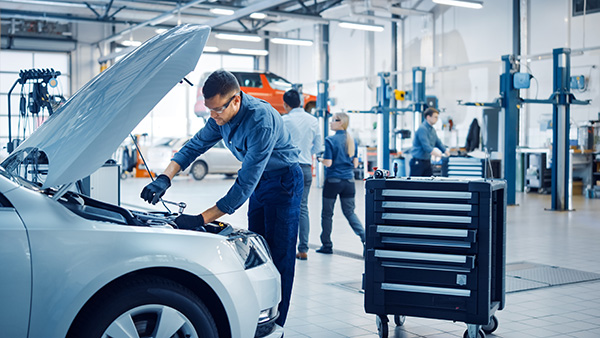
The word “tune-up” still gets used every day, but the job it describes has changed a lot since the carburetor days. Decades ago, a tune-up meant replacing a big list of parts that physically wore out on a schedule. Today, engines are controlled by computers, and many of those old parts do not even exist anymore, yet the need for regular attention has not gone away. What a Classic Tune-up Used to Include If you go back a few decades, a tune-up was mostly about the ignition and fuel delivery systems. Engines relied on mechanical distributors, carburetors, and a handful of parts that slowly drifted out of adjustment or just wore out with mileage. A car that was hard to start or ran rough every couple of years simply needed its “tune-up.” A typical old-school tune-up often included new spark plugs, plug wires, distributor cap and rotor, setting ignition timing, adjusting the carburetor mixture and idle speed, and checking or replacing the air and ... read more
Posted on 11/28/2025
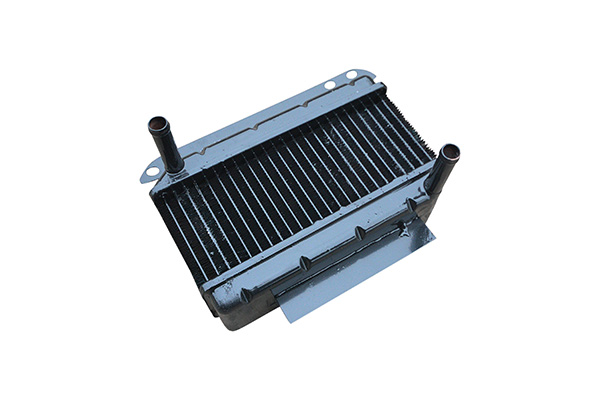
A heater that stays cold while the temperature gauge looks fine is frustrating. It usually means coolant is not reaching the heater core, hot air is not being directed through it, or the system is being fooled by a sensor or control fault. Here is a clear path to the most likely causes and the simple checks that separate them. What “Normal Gauge, No Heat” Usually Means Your dash gauge reports engine temperature at the sensor near the thermostat, not the temperature inside the heater core. If coolant is low, air can collect in the heater circuit and block flow there while the engine itself still reaches normal temperature. Another common pattern is a stuck HVAC blend door that never routes cabin air across the hot core. Less often, a partially restricted heater core flows just enough to warm the firewall but not enough to heat the cabin at idle. Coolant Level and Air Pockets: Quick First Checks Only check when the engine is completely ... read more
Posted on 10/31/2025
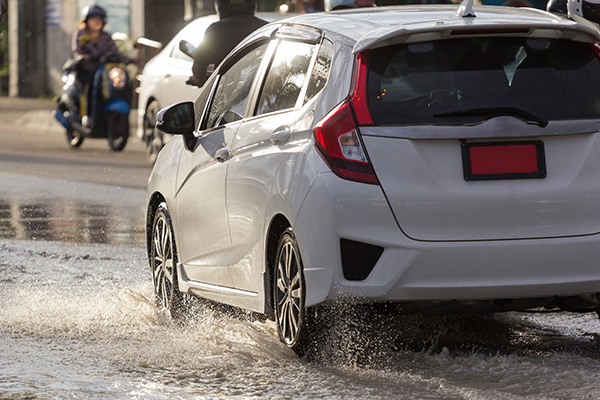
When roads are wet, even small problems with your tires can affect how well your car stops. Many drivers assume that as long as the tires aren’t bald, they’re safe. But tread depth starts to affect braking performance long before the tire reaches the legal minimum. As tread wears down, it becomes harder for your tires to push water out of the way. That can lead to longer stopping distances, reduced grip, and a higher chance of hydroplaning. Your brakes may be in perfect condition, but if your tires can’t maintain traction, they won’t stop the vehicle as quickly as they should. What Tread Does in Wet Conditions Tread helps channel water away from the tire’s contact patch, which is the small area of rubber actually touching the pavement. When the grooves are deep enough, they allow the water to escape so the tire can stay in contact with the road. But when those grooves wear down, water has nowhere to go. It builds up under the tire and l ... read more
Posted on 9/26/2025

Car repairs can feel overwhelming, especially when you’re not familiar with all the technical details. The best way to protect yourself is to ask clear, direct questions before giving the shop approval to move forward. A trustworthy repair center will take the time to explain the situation, give you options, and make sure you feel confident about the decision. Here are five essential questions every driver should ask before authorizing a repair. 1. What Exactly Needs to Be Repaired, and Why? Start with the basics. Ask your technician to explain what’s wrong in plain language rather than technical jargon. A good shop should be able to describe the problem in a way that makes sense to you, whether it’s a worn-out brake pad, a leaking hose, or a failing sensor. Whenever possible, request to see the damaged part before it’s replaced. If you can’t be there in person, ask for a photo. This extra step helps confirm the diagnosis and gives you ... read more
Posted on 8/29/2025
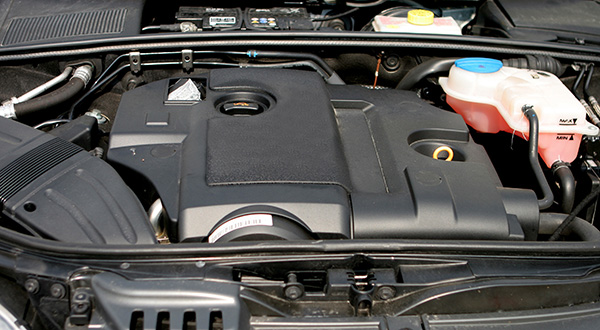
Pulling into your driveway and shutting off the car should be the end of the driving experience, but sometimes unusual sounds continue even after the engine is turned off. A hissing noise is one of the most common post-drive sounds drivers notice. While it can sometimes be normal, in other cases it signals a mechanical or safety concern. Knowing when a hiss is harmless and when it requires service helps you avoid stress and unexpected repairs. Harmless Causes of Hissing Not every hiss points to a problem. Some sounds occur because your vehicle is cooling down after a drive. For example, if you’ve been on the highway or in heavy traffic, the engine bay can reach high temperatures. As components like the exhaust system or radiator release heat, metal expands and contracts, creating noises that resemble hissing. Moisture can also play a role. If you&rsquo ... read more
Posted on 7/29/2025

A long road trip can be a great adventure—but after a few hours on the highway, boredom can creep in, especially if you're traveling with kids. Instead of relying solely on screens or frequent snack breaks, why not make the drive more enjoyable with some classic and creative road trip games? Playing games in the car isn’t just a way to pass the time. It encourages interaction, sparks creativity, and helps the hours fly by without anyone constantly asking, “Are we there yet?” Here are 10 fun and easy road trip games the whole family can enjoy, with no special equipment required. 1. I Spy This classic guessing game is ideal for younger passengers but fun for all ages. One person says, “I spy with my little eye something...” and gives a clue, such as a color or shape. Everyone else takes turns guessing what the object might be. The person who guesses correctly gets to be the next spy. It’s simple, engaging, and keeps everyo ... read more
Posted on 6/27/2025

In places like Houston and Spring, Texas, where summer temperatures can climb well into the 90s and beyond, the color of your car might do more than just show off your style. It can impact how hot your car gets after sitting in the sun. Many drivers overlook this detail, but the color of a car plays a surprisingly significant role in interior temperature and overall comfort. Whether you’re shopping for a new vehicle or wondering why your current ride feels like a furnace after a short park, understanding how car color affects heat absorption can help you make better choices for your daily driving experience. The Science Behind Heat and Color The science is simple: darker colors absorb more light and heat than lighter ones. When sunlight hits a car’s surface, darker shades like black, navy, or dark gray take in more of the sun’s energy. This heat is transferred to the car’s metal body, which in turn warms the air inside the cabin. On the other ... read more
Posted on 5/30/2025
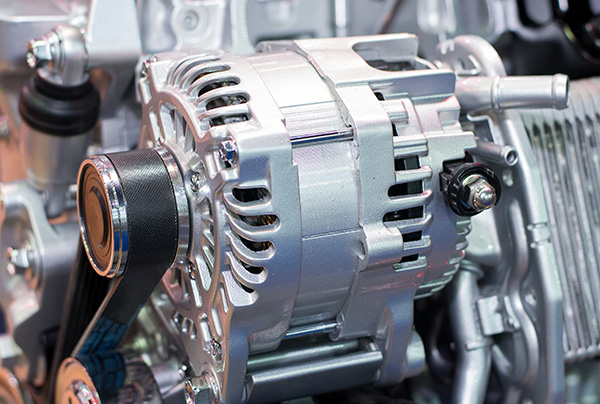
When your car’s battery dies, most people assume the battery itself is to blame. But in many cases, it’s the alternator that’s at fault. The alternator is responsible for keeping the battery charged and powering your vehicle’s electrical systems while the engine is running. If it begins to fail, your battery won’t stay charged, and you could find yourself stranded—often without warning. Knowing the symptoms of a bad alternator and how to spot them early can help you avoid sudden breakdowns and keep your car’s electrical system operating smoothly. What the Alternator Does in Your Vehicle Your car’s alternator is a small generator driven by the engine’s serpentine belt. It creates electricity by converting mechanical energy into electrical energy. That power is used to recharge the battery and operate everything from the headlights and dashboard lights to power windows, radio, and climate control systems. While th ... read more
Posted on 4/28/2025
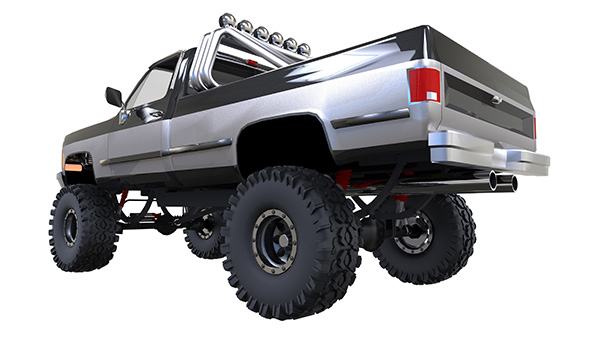
Off-road driving can push your pickup to its limits—and that’s part of the fun. But before you leave the pavement, it’s important to make sure your truck is prepared for the terrain ahead. Even rugged vehicles need a few checks and upgrades to stay safe and reliable off the beaten path. Whether you're planning a weekend on rocky trails or navigating muddy backroads, here's how to make sure your truck is up to the challenge. Tires and Suspension: Your First Line of Defense The right tires make a huge difference when driving off-road. All-terrain or mud-terrain tires offer the grip needed for dirt, sand, rocks, and inclines. Standard highway tires just won’t cut it—and they’re more likely to get punctured or lose traction. Suspension also matters. If your pickup has stock shocks or coilovers, they might not handle continuous jarring or uneven terrain very well. Consider checking for signs of wear like sagging, leaks, or exce ... read more
Posted on 3/28/2025
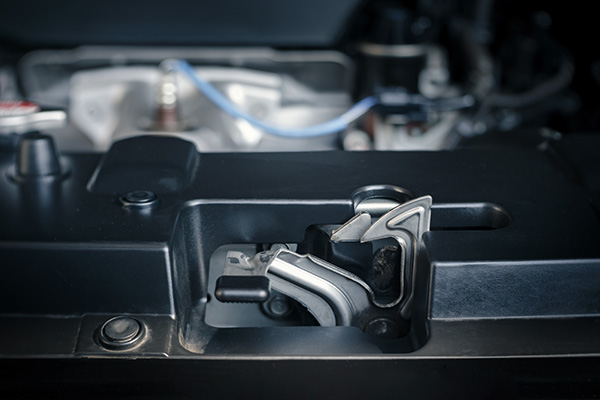
You pull the hood release lever inside your car, expecting to hear that familiar pop—but nothing happens. Or maybe the lever feels loose, or you hear the pop, but the hood stays shut. When your hood won’t open, it’s more than just frustrating—it keeps you from checking your oil, refilling fluids, or inspecting your engine. This kind of problem often catches drivers off guard. It usually seems minor until the moment you need to check something under the hood and realize you can’t. Thankfully, most of the time, it’s a mechanical issue that can be fixed without replacing major components—if you catch it early enough. Causes of a Stuck Hood When the hood release doesn’t work, it’s almost always one of three things: a broken cable, a jammed latch, or a misalignment between the latch and the hood catch. The release system works like this: a cable runs from the lever inside your car to the hood latch under the front of ... read more